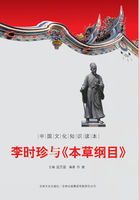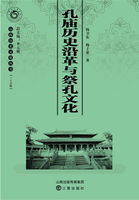Such a powerful democracy of the nobility had already become an impossibility in Germany of the Sixteenth Century, first of all because there existed at that time important and powerful German cities and there was no prospect of an alliance between nobility and the cities such as brought about in England the transformation of the feudal order into a bourgeois constitutional monarchy.In Germany, the old nobility survived, while in England it was exterminated by the Wars of the Roses, only twenty-eight families remaining, and was superseded by a new nobility of middle-class derivation and middle-class tendencies.In Germany, serfdom was still the common practice, the nobility drawing its income from feudal sources, while in England serfdom had been virtually eliminated, and the nobility had become plain middle-class land owners, with a middle-class source of income -- the ground rent.
Finally, that centralisation of absolute monarchial power which in France had existed and kept growing since Louis XI due to the clash of interests between nobility and middle-class, was impossible in Germany where conditions for national centralisation existed in a very rudimentary form, if at all.
Under these conditions, the greater was Hutten's determination to carry out his ideals in practice, the more concessions was he compelled to make, and the more clouded did his plan of reforming the empire become.
Nobility, alone, lacked power to put the reform through.This was manifest from its weakness in comparison with the princes.Allies were to be looked for, and these could only be found either in the cities, or among the peasantry and the influential advocates of reform.But the cities knew the nobility too well to trust them, and they rejected all forms of alliance.The peasants justly saw in the nobility, which exploited and mistreated them, their bitterest enemy, and as to the theoreticians of reform, they made common cause with the middle-class, the princes, or the peasants.What advantages, indeed, could the nobility promise the middle-class or the peasants from a reform of the empire whose main task it was to lift the nobility into a higher position? Under these circumstances Hutten could only be silent in his propaganda writings about the future interrelations between the nobility, the cities and the peasants, or to mention them only briefly, putting all evils at the feet of the princes, the priests, and the dependence upon Rome, and showing the middle-class that it was in their interests to remain at least neutral in the coming struggle between the nobility and the princes.No mention was ever made by Hutten of abolishing serfdom or other burdens imposed upon the peasants by the nobility.
The attitude of the German nobility towards the peasants of that time was exactly the same as that of the Polish nobility towards its peasants in the insurrections since 1830.As in the modern Polish upheavals, the movement could have been brought to a successful conclusion only by an alliance of all the opposition parties, mainly the nobility and the peasants.
But of all alliances, this one was entirely impossible on either side.
The nobility was not ready to give up its political privileges and its feudal rights over the peasants, while the revolutionary peasants could not be drawn by vague prospects into an alliance with the nobility, the class which was most active in their oppression.The nobility could not win over the German peasant in 1522, as it failed in Poland in 1830.Only total abolition of serfdom, bondage and all privileges of nobility could have united the rural population with it.The nobility, like every privileged class, had not, however, the slightest desire to give up its privileges, its favourable situation, and the major parts of its sources of income.
Thus it came about that when the struggle broke out, the nobles were alone in the field against the princes.It was obvious that the princes, who, for two centuries had been taking the ground from under the nobility's feet, would this time also gain a victory without much effort.
The course of the struggle itself is well known.Hutten and Sickingen, already recognised as the political and military chiefs of the middle German nobility, organised in Landau, in 1522, a union of the Rhenish, Suabian and Franconian nobility for the duration of six years, ostensibly for self-defense.
Sickingen assembled an army, partly out of his own means and partly in combination with the neighbouring knights.He organised the recruiting of armies and reinforcements in Franconia, along the Lower Rhine, in the Netherlands and in Westphalia, and in September, 1522, he opened hostilities by declaring a feud against the Elector-Archbishop of Trier.While he was stationed near Trier, his reinforcements were cut off by a quick intervention of the princes.The Landgrave of Hesse and the Elector Palatine went to the aid of the Archbishop of Trier, and Sickingen was hastily compelled to retreat to his castle, Landstuhl.In spite of all the efforts of Hutten and the remainder of his friends, the united nobility, intimidated by the concentrated and quick action of the princes, left him in the lurch.Sickingen was mortally wounded, surrendered Landstuhl, and soon afterwards he died.
Hutten was compelled to flee to Switzerland, where he died a few months later on the Isle of Ufnau, on the Lake of Zurich.
With this defeat, and with the death of both leaders, the power of the nobility as a body, independent of the princes, was broken.From then on the nobility appeared only in the service and under the leadership of the princes.The Peasant War, which soon broke out, drove the nobles still more deeply under the direct or indirect protection of the princes.
It proved that the German nobility preferred to continue the exploitation of the peasants under princely sovereignty, rather than overthrow the princes and priests through an open alliance with the emancipated peasants.
[ To part 5 ]















